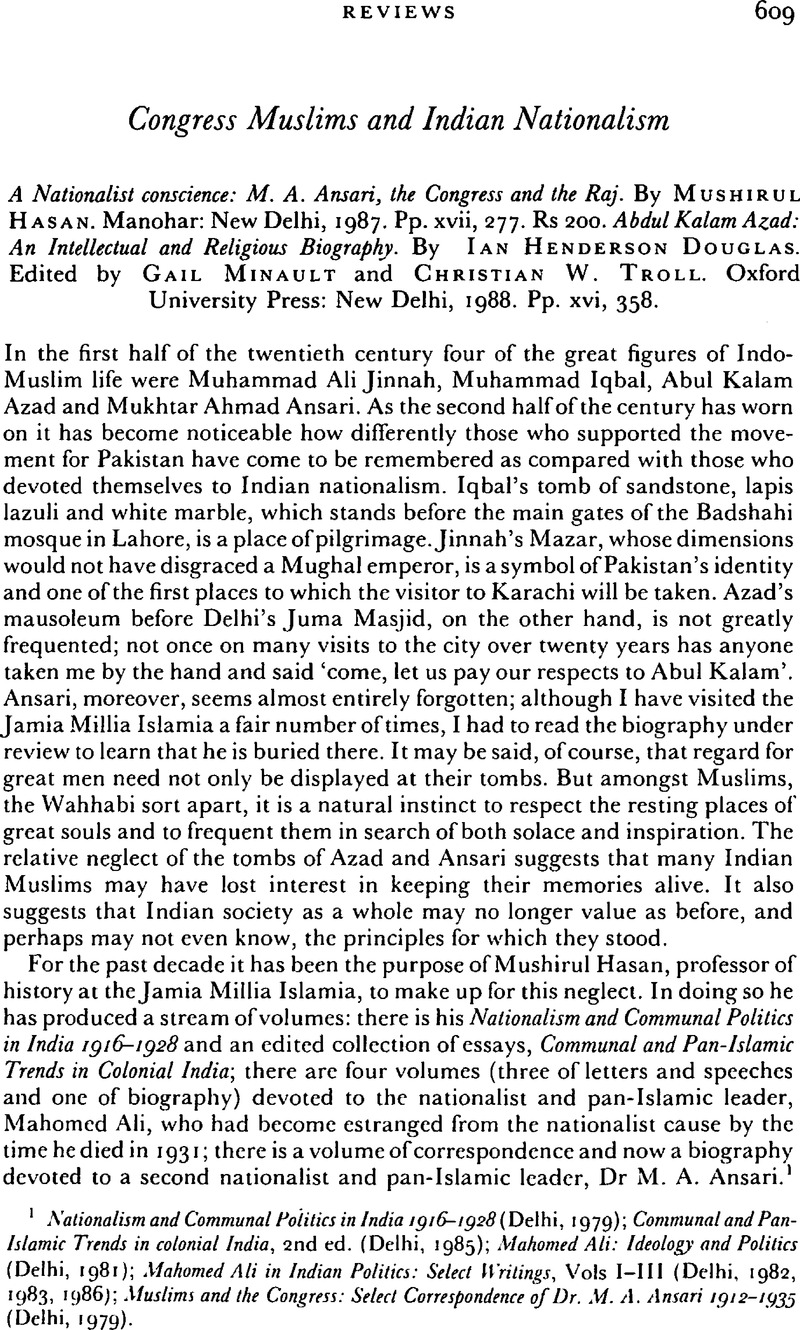No CrossRef data available.
Published online by Cambridge University Press: 28 November 2008

1 Nationalism and Communal Politics in India 1916–1928 (Delhi, 1979);Google ScholarCommunal and Pan-Islamic Trends in colonial India, 2nd ed. (Delhi, 1985);Google ScholarMahomed Ali: Ideology and Politics (Delhi, 1981);Google ScholarMahomed Ali in Indian Politics: Select Writings, Vols I–III (Delhi, 1982, 1983, 1986);Google ScholarMuslims and the congress: Select correspondence of Dr. M. A. Ansari 1912–1935 (Delhi, 1979).Google Scholar
2 David, Page, Prelude to Partition: The Indian Muslims and the Imperial Srstem of Control. 1920–1932 (Delhi, 1982).Google Scholar
3 This point is also made quite independently in a recent work: Azad Faruqi, I. H., The Tarjuman Al-Qur'an: A critical Analysis of Maulana Abu'l Kalam Azad's Approach to the Understanding of the Qur'an (Delhi, 1982).Google Scholar
4 See Aziz, Ahmad, Islamic Modernism in India and Pakistan, 1857–1964 (London, 1967), p. 129 andGoogle ScholarMushirul, Hasan, ‘Pan-Islamism versus Indian Nationalism: A Reappraisal’ in Brass, Paul R. and Francis, Robinson (eds), Indian National Congress and Indian Society 1885–1985: Ideology, Social Structure, and Political Dominance (Delhi, 1987), p. 148.Google Scholar
5 Douglas, Azad, p. 288.Google Scholar The article was devoted to Sarmad, the sufi martyr of Aurangzeb's reign. This will be translated in full in Troll, Christian W., ‘Sarmad, the Martyr, by Abdul Kalam Azad’ in Shackle, C. (ed.), Festschrift for Ralph Russell, 1988.Google Scholar
6 Douglas, Azad, p. 289.Google Scholar
7 Douglas, Azad, p. 215.Google Scholar